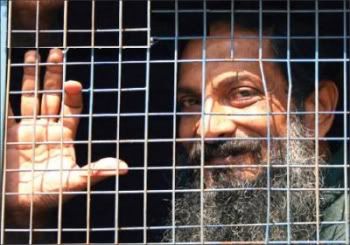Human Rights and Wrongs: Tale of a Doctor, Activist, Prisoner
Jun 1st, 2009 | By Aastha Sharma | Category: Articles Newspapers and television news channels a couple of days back woke up to report the fact that one Dr. Binayak Sen had been finally released on bail.
Newspapers and television news channels a couple of days back woke up to report the fact that one Dr. Binayak Sen had been finally released on bail.
Binayak Sen who?
… must have been the question many would have asked. It’s not their fault really. The media does not jump at human rights violations, especially those on human rights activists, and reporting on the matter is quite inadequate.
So, why was he jailed in the first place?
Dr. Sen was arrested on false charges under the Chhattisgarh Special Public Security Act for “expressing sympathy” with the Maoist insurgents. This draconian Act authorizes the police to detain a person indefinitely (and without trial) for alleged offences such as showing a tendency to pose an obstacle to the administration of law and makes the grant of bail almost impossible. On May 14, 2009, he completed two years of imprisonment.
On several occasions, Dr. Sen has denied any linkages with the Maoist movement and though on the one hand he condemns Maoist violence, he also does not endorse the anti-people actions of the government. Dr. Sen has gone on record condemning Maoist violence, calling it an invalid and unsustainable movement.
Actually, the only “thing” he has done is annoy the Chattisgarh government by raising his voice against the state-run counter insurgency campaign called ˜Salwa Judum” (meaning ˜peace mission”) through which the government is arming civilians against the Maoists. According to various human rights organizations such as the People’s Union for Civil Liberties, the Salwa Judum is a government-backed organisation, supported by the Chhattisgarh government.
In a letter to the President of India, the Prime Minister of India, and to the Chief Minister of Chhattisgarh, Dr. Nils Dulaire (president and chief executive officer of the Global Health Council) wrote:
The world is watching this case. Some have expressed concern that it might represent a dwindling respect for civil liberties in India. We believe, however, that allowing Dr. Sen to attend the award’s ceremony would send a strong signal internationally that would help to restore faith that India and its states are indeed committed to fairly addressing this and other cases related to civil conflicts and civil liberties. Dr. Binayak Sen’s travel to the United States for this purpose would pose no threat to the security of Chhattisgarh or the integrity of the Indian judicial system.
Moreover, twenty-two Nobel laureates from around the world appealed to the Indian government to allow Sen to receive the award in person as protest demonstrations were held around the world on May 14th in 2008 and 2009. But the government at the state and the centre turned a deaf ear.
On a recent trip to Raipur, accompanied by some of his old colleagues, I had the opportunity to meet Dr. Sen at the Raipur high court, while he waited under the scorching sun for his trial to begin. He seemed quite happy meet his friends, while the police eyed all of us as potential criminals.
The two-year long arduous chapter of Dr. Sen in jail finally came to an end on May 25 2009, with his release by a Supreme Court judge, who finally admitted that “Two years is too much!”, spelling out the next day’s newspaper headlines. However, Dr. Sen has only been let out on bail, and his trial is still on. Though his release is reason enough to celebrate the triumph of truth and an expression of civil liberties in India, I cannot bring myself to be very optimistic.
While this is definitely a positive step, the situation in Chhattisgarh continues to be the way it was. A few days back, students from another state on an exposure trip to the state, under another organisation working on forest rights, were beaten up and the office of the organization demolished. Similar stories of police atrocities do the rounds continuously. Another doctor was arrested simply because a prescription made by him was found among the possessions of a mao suspect.
Agreed that the government felt like running a case against Dr. Binayak, but why was he jailed for two years? Why did it take the court two years to grant him bail? When will the state, like a mature institution, confer on its people the right to dissent? When will it acknowledge the work of those working at the grassroots, learn from their experiences and listen to them as they become the voice of those to whom the state is never able to reach by itself? And finally, when will it open its ears towards constructive criticism?




